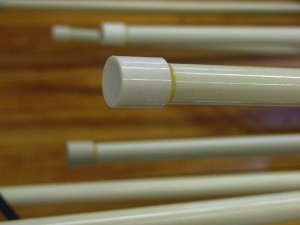Digital Research Methods: 23 Provocations
May 25th, 2010 by Christian(or: Methods Quotes Without Any Context)
I recently participated in an invigorating conversation about the future of research methods and digital media. As an experiment, instead of my usual note-taking at this event I wrote down complete quotations that I thought were interesting and compiled them into the list below. As a form of note-taking it’s a little strange as it lacks all context–but still I enjoyed reading through these again after the event. Maybe you will, too. I found that my notes ended up being a kind of list of provocations about research methods. Thanks to those quoted for giving me permission to quote.

[Rainbow over Vierwaldstättersee;
photo by silvertje on flickr, click to enlarge]
Our conversation was so successful it may have caused this rainbow outside the window of the room where we were meeting. Before the provocations, two brief notes:
First, in case you like this sort of thing, I have also archived four more pages of interesting quotes about research methods by Einstein, Tarde, Camus, Feyerabend, and people like that elsewhere on mismethodology.info (pardon the strange Drupal theme of that site — it needs UI work). I may move some or all of these over there at some point.
Second, I’m using quotation marks here because I tried for accurate quotations and I checked with the people quoted after the fact, but indeed I could still have misquoted someone as I was trying to write this stuff down very fast.
My co-presenter at this event, Anne Helmond, also blogged about this in a more normal prose style.
And now, to the provocations!
23 Provocations About Digital Research Methods
#1: “thinking about method is the schizophrenic period in the patient, science.” –Herbert Burkert
#2: “in the digital space the cartographers have claimed to be geographers, or they have claimed that no geography is needed.” –Rob Faris
#3: “objectivity is a useful subjectivity.” –Christian Sandvig
#4: “Scientists are between action and reflection at all times. Some people do and some reflect on what others are doing.” –Gerhard Buurman
#5: “the challenge here is to see the invisible institutional conditions that separate disciplines in the first place.” –Jean Nicolas Druey
#6: “is digital media an evolution of methods or a revolution?” –Herbert Burkert
#7: “One of the fascinating things about the law is that it kills the new.” –Herbert Burkert
#8: “You can arrange digital research methods on a spectrum of niceness. On the one hand you use the industry-provided API. On the other you scrape Facebook for all it is worth.” –Anne Helmond
#9: “Large sets of data pollute disciplines. When we know so much we are tempted to make use of it.” –Gerhard Buurman
#10: “Remember that disciplines are a hierarchy and not a democracy. If a methodological bandit is one who steals a method from another discipline, just as in real banditry, notice that the weak often steal from the powerful.” –Jean Nicolas Druey
#11: “On the Internet the need is not just for new methods but new flexibility. We need plastic methods.” –Martina Merz
#12: “the search engines are the imperfect maps that align the Web to physical places.” –Anne Helmond
#13: “The second wave of Internet censorship is new in that it is episodic and of much greater complexity.” –John Palfrey
#14: “Internet methods are incessantly volatile due to the update culture of the Internet itself.” –Anne Helmond
#15: “as people who usually have to generate our own data, digital research methods are profoundly seductive.” –Martina Merz
#16: “The dienstweg also exists at the Berkman Center.” –Urs Gasser
#17: “Are we dealing with new data or are we finding a new language?” –Gerhard Buurman
#18: “the volume and the ambition of interdisciplinary digital research methods is amazing…what would the result be if we took this abstract higher-order thinking and landed it?” –Colin Maclay
#19: “Discourse and censorship are action and reaction.” –John Palfrey
#20: “The striking thing about new methods is dynamism: of the data, of the object of study, of the researchers, of everything.” –Caroline Nolan
#21: “Are conversations about new methods really just new forms of the same old conversations? Even if they are, note that both new and old, these are conversations that most researchers never bother to have in the first place.” –Eszter Hargittai
#22: “A prime ingredient of methodological innovation is courage. My conclusion from this discussion of new methods is to embrace riskiness.” –Herbert Burkert
#23: “I now realize that during my five years at university I was completely wrong to think of research methods as boring.” –Sandra Cortesi
